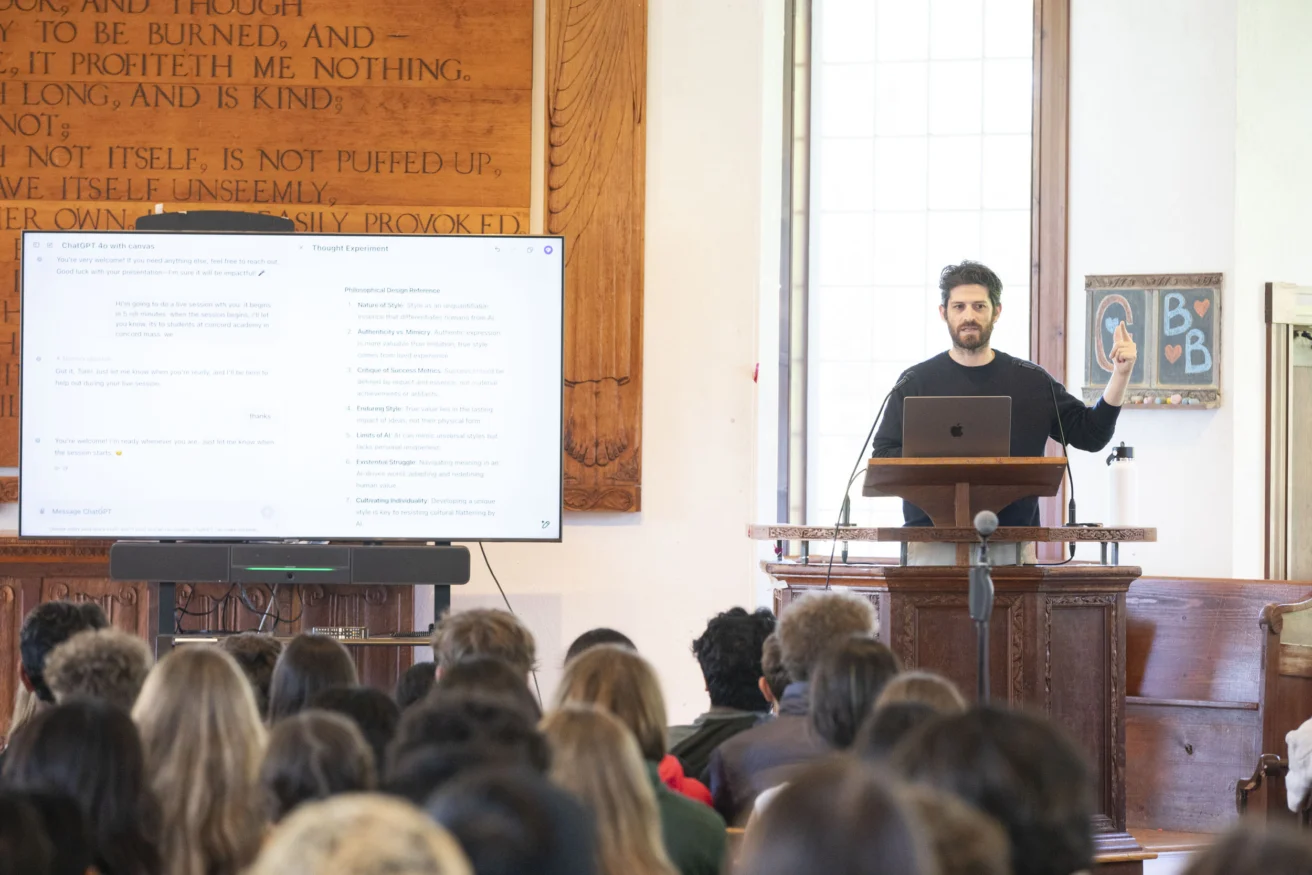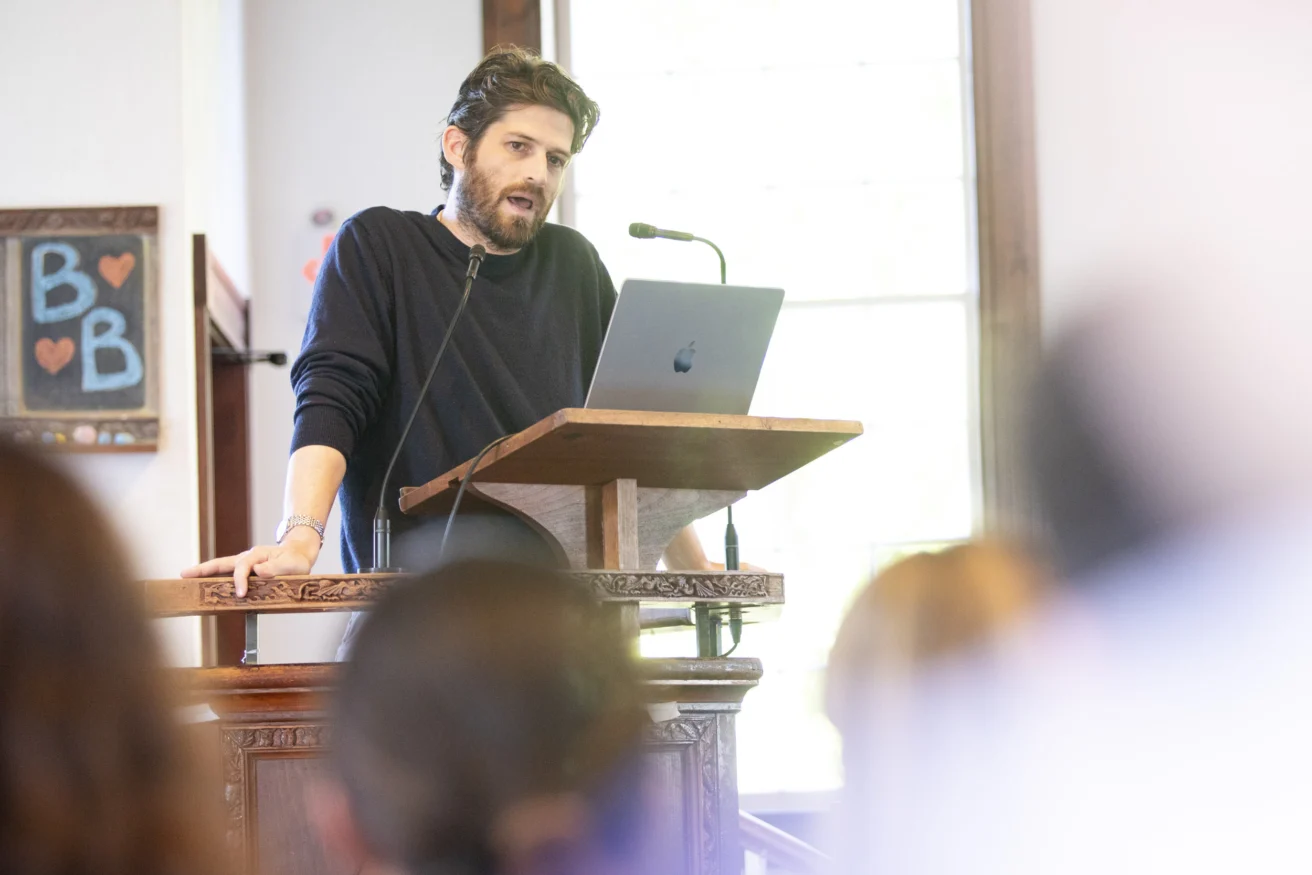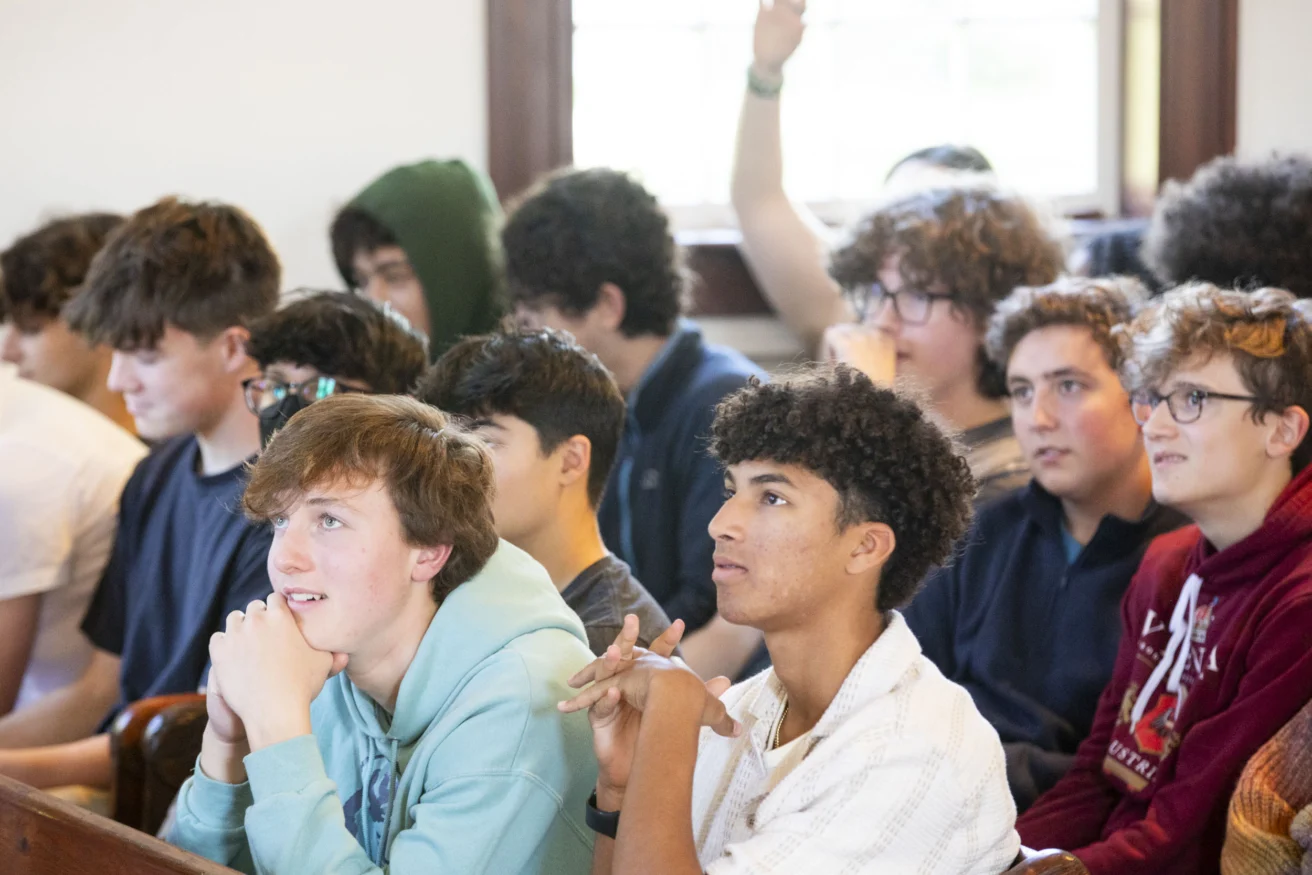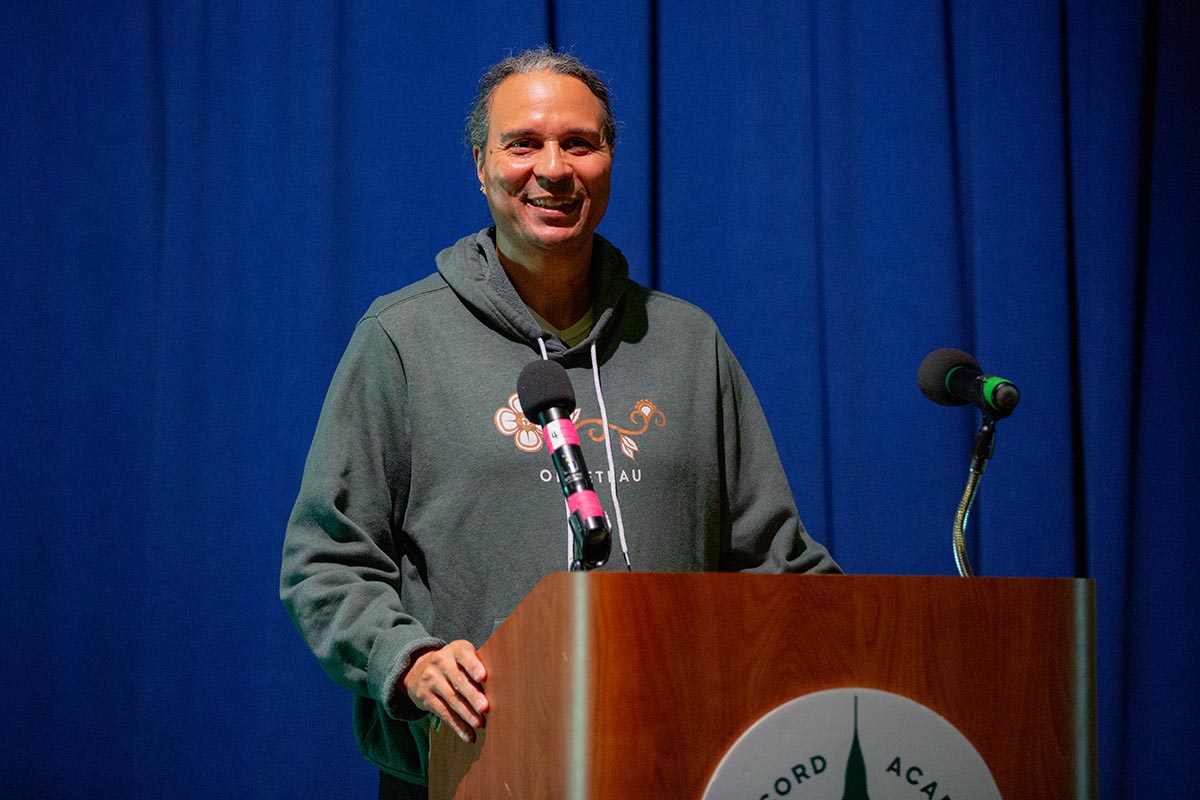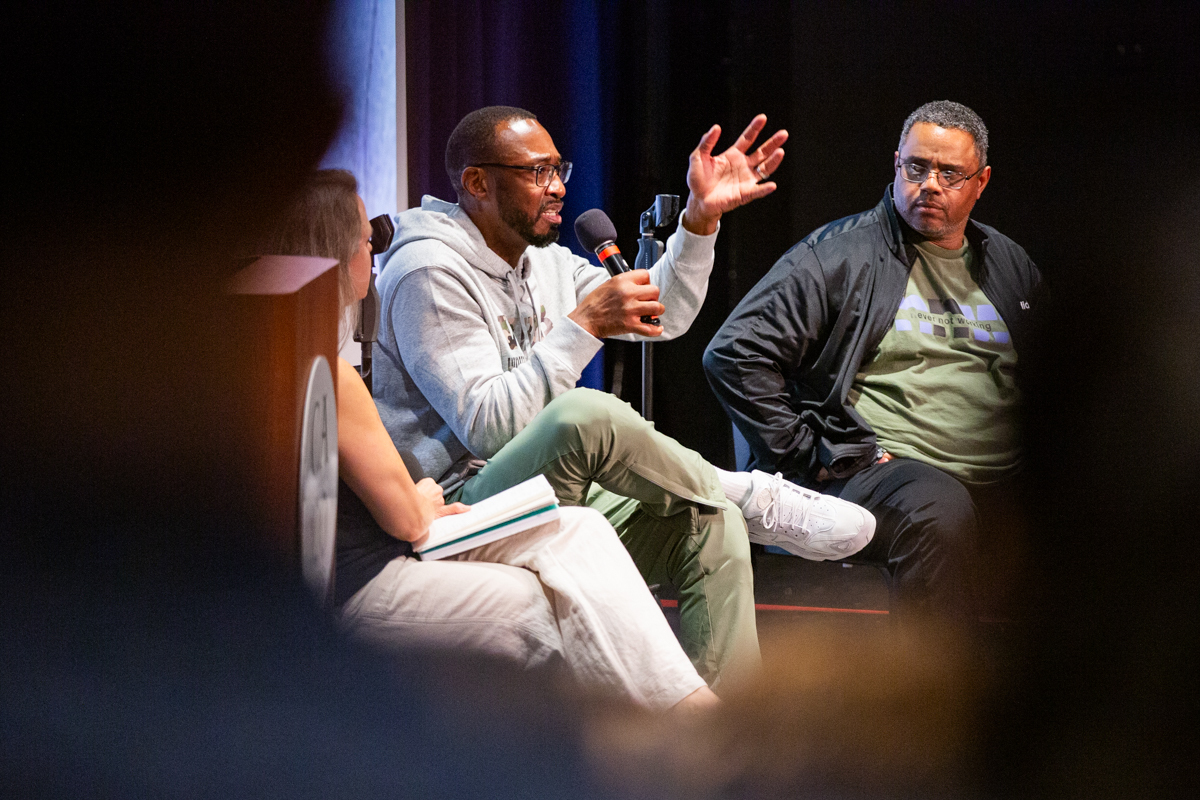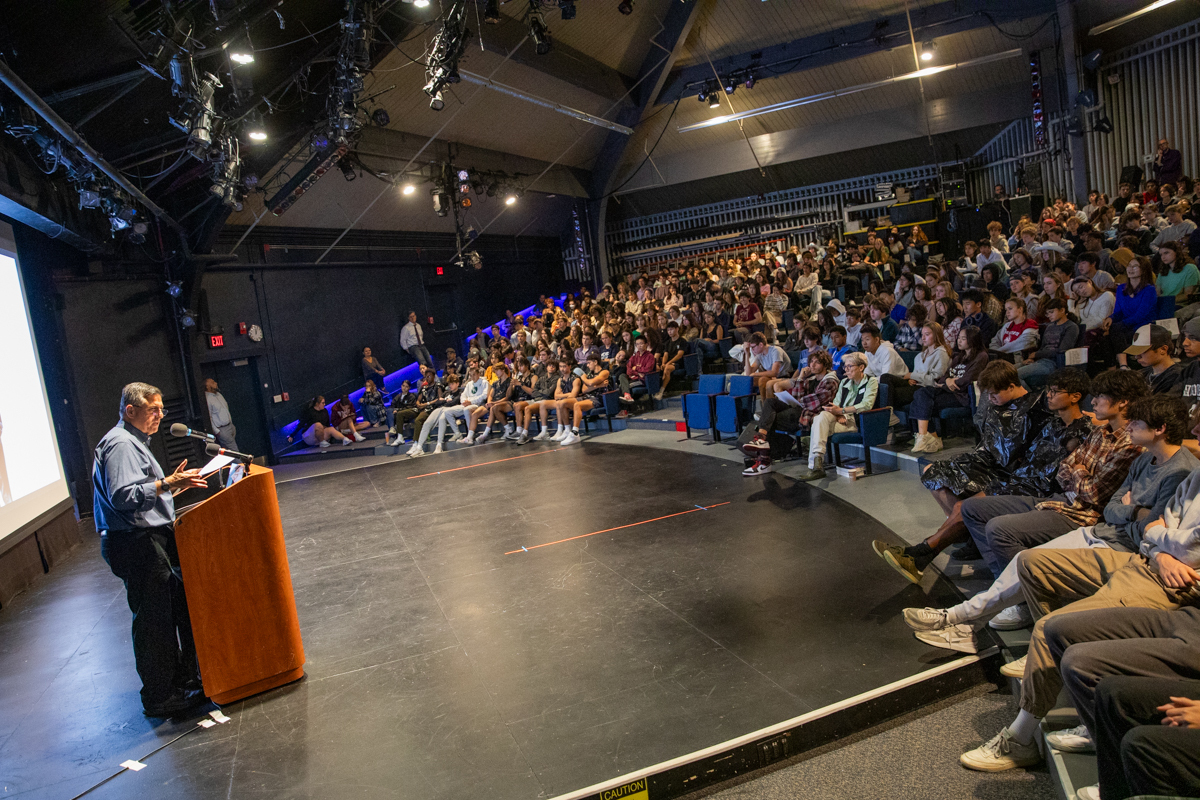Tom McMillan ’03 Is Putting AI to Use to Model Climate Economics
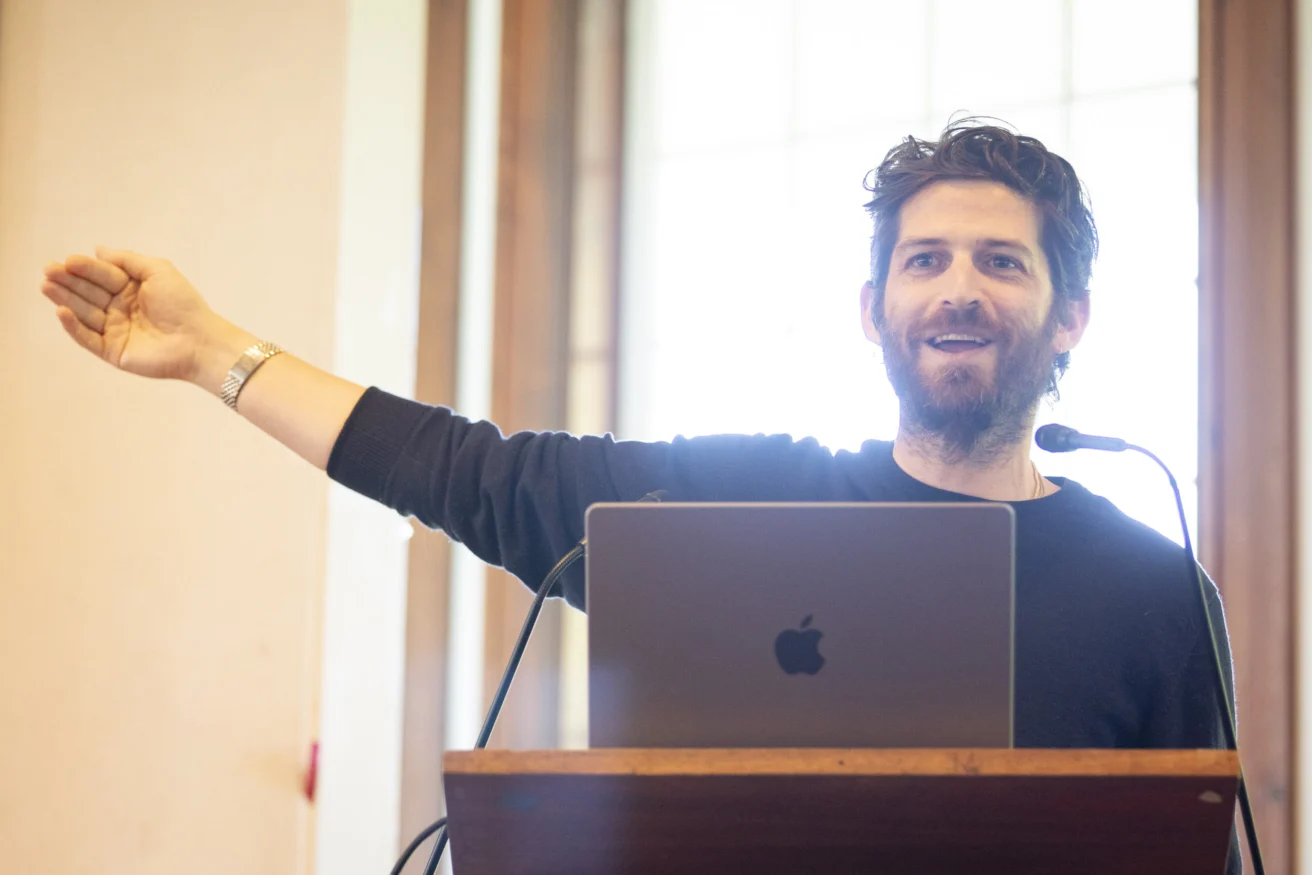
For technology executive Tom McMillan ’03, metacognition and artistic expression have been lifelong orientations. His startup Climate Index AI uses AI to measure and forecast the economic impact of climate change. As founder and CEO, his approach to the rapidly evolving technology is an extension of these habits of mind.
McMillan started Climate Index AI because he believed climate change was affecting the economy in ways we had yet to measure and understand, and that AI and machine learning gave us the opportunity to see its impact more clearly. But without a traditional tech or data science background, McMillan has a different orientation than most founders. What he brings—in addition to personal concern about the climate crisis—is a perspective about AI informed by the arts and humanities.
“One of the tricky things about AI is that we have to teach computers how to think about thinking,” he says. “In a funny way, I spent a lot of time at Concord thinking about how I think and was introduced to some frameworks for that and some philosophies, texts, books, authors, and ideas.”
Poets are “some of the best prompt engineers” for AI, McMillan says, laughing: “When I’m trying to convince a computer to do something, I sometimes have to break out Wallace Stevens.” To clarify his ideas and needs through words, he explains, he looks to writers with clear voices and tries to parse how they communicate so well. “What they think, and who they are and what tools of language and thinking make them most effective.”
From a family of professional writers, McMillan majored in English at Tufts University. In addition to being a technology executive, he has worked as a commercial real estate consultant, construction manager, and film and TV production designer. Over an eclectic 17-year career, he has worked on a dozen films and a million square feet of commercial real estate and led two AI startups.
McMillan was born in the coastal Lowcountry of South Carolina, where he witnessed the devastation of Hurricane Hugo in 1989, 45 miles from his home. That formative experience, he says, now gives him a sense of “how climate change is changing the not-so-distant future of where and how we can live.”
In 2022–23, while enrolled in an executive education program in real estate development at the Harvard Graduate School of Design, he started looking into the effects of climate change on commercial real estate. It was there that he came to believe that climate change is “an economic phenomenon, not just a weather event.” He started researching, reading, and engaging thinkers in the field. At the time, he was running, Maslo, an AI startup he took over from its founder, which was later acquired in 2024, and he began talking with that team about an opportunity.
“I want to use the technology to create a record of the actual impact of climate change on financial markets,” McMillan says. “I believe that information will allow people in different industries to create tools, technologies, instruments, regulations, policies, and strategies that will improve the world.”
AI helps him observe, find correlations, and build prediction models, which he is now sharing and refining with his customers, commercial real estate investors.
Today, McMillan says, “I just look at hurricane data.” But his interest in AI is wide-ranging, and he uses it in many areas of his life. “The technology is almost like a material that’s being introduced, and we’re not sure what we can paint with it, we’re not sure what we can build with it, and we’re not even totally sure we understand all of its properties,” he says. In that sense, he adds, it’s not different from other new technologies.
When he returned to Concord Academy on October 11, 2024, to connect with students about AI, McMillan welcomed critiques and evaluative questions about this new “material.” He encouraged them to play and experiment with it—to interrogate their interactions with AI and form their own perspectives on how it can and should be used.
During his campus visit, McMillan connected with students over lunch. During an all-school assembly in the Elizabeth B. Hall Chapel, he conducted an open-ended conversation about climate economics and generative AI. As he asked and fielded questions, McMillan typed into ChatGPT, conducting a live session—a frequent way he engages with customers.
The room was animated. Aware that CA has a statement outlining practices around AI, but not a fixed policy—the technology is evolving too rapidly—McMillan offered a variety of scenarios to challenge students to refine their perspectives on AI. Most had used ChatGPT that week. Hardly any had built a custom GPT. How many had dragged and dropped a PDF into GPT? How many had used it to solve a personal problem? (Laughter rippled through the benches as many hands were sheepishly raised.) Then the scenarios got more complicated: What if teachers used an AI tool to grade student work? What if the students helped establish the rules and parameters?
“Building AI involves writing sets of instructions, like a style guide, for how to understand the world,” he told them. What needs to be part of those instructions, he said, are your own values: “It doesn’t understand what’s important to you.”
Becoming fluent in creating those instructions would become central to white-collar jobs in the future, McMillan predicted. Learning to do so, he said, can help us use the technology to “solve important problems at a scale we couldn’t before.”
Reflecting on his visit to CA, McMillan says he had expected AI to be “an animating topic,” but he was surprised by the strength of the differing opinions he encountered from students. To him, it simply indicated the need for more “real discusion” about AI.
Framing how we talk to AI as a “style” was intentional, for McMillan. He took this concept from the final chapter by E. B. White in The Elements of Style. “It’s a good way of thinking about what we have to do before we start using an AI tool,” he says. “You have to make a guidebook, a set of arguments about style, rooted in your values, how a business works, and how you see the world.” Defining a style, he says, will help “avoid the flattening of culture some people feel AI is introducing.”
As for Climate Index AI, the venture-backed, pre-seed tech company will bring its first batch of models to market in January 2025. McMillan hopes to see the establishment of a climate price index that all businesses can reference in making decisions—that innovators “can use as a material to build interesting things.”
